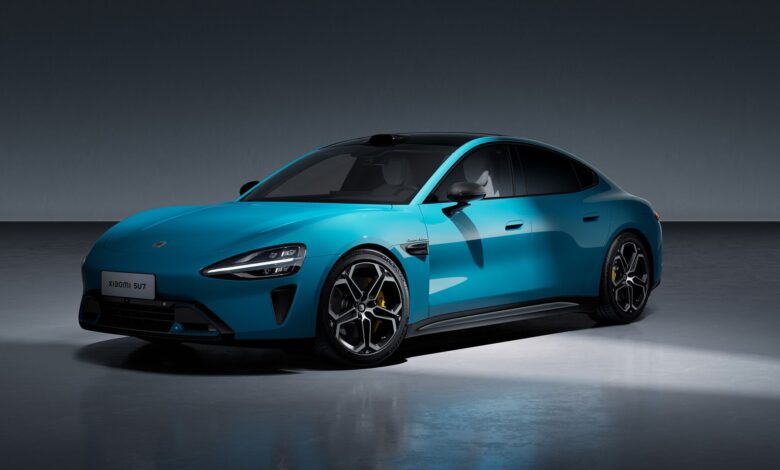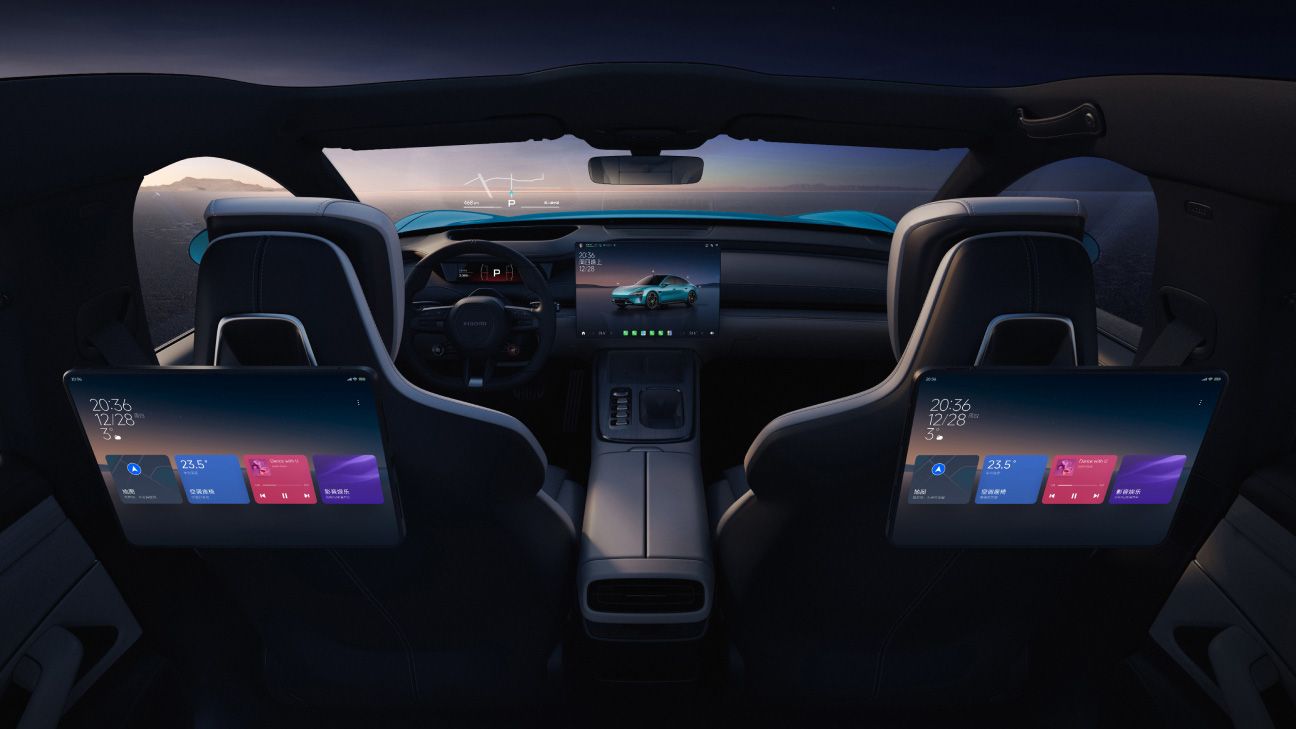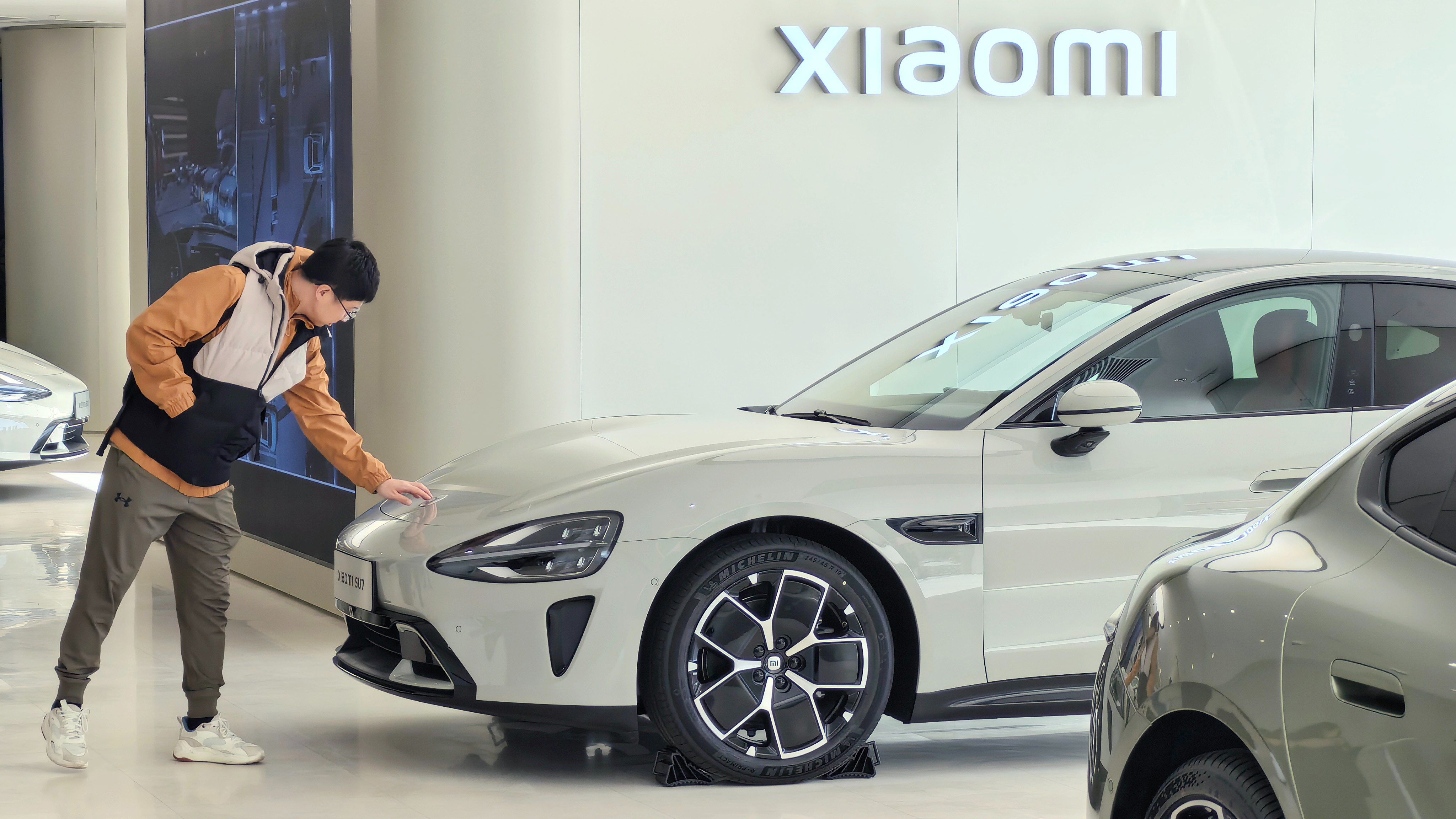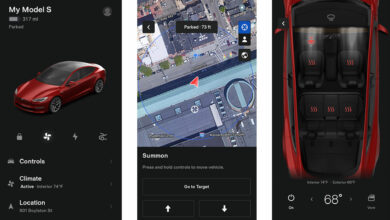Sales Of Xiaomi’s First Electric Car Are Rocketing After Undercutting Tesla By Thousands Of Dollars

Key Takeaways
- Initial orders for the Xiaomi SU7 electric vehicle far exceeded expectations.
- Pricing below the competition helped fuel sales, but will incur a loss with every unit sold.
- Deliveries have officially started, but some people will be waiting up to 30 months for their SU7.
Xiaomi is a Chinese smartphone company that recently launched its first electric vehicle. It might seem like an odd move, but it’s a huge hit in China, selling 3-5 times more than what the company expected, according to founder and CEO, Lei Jun. He shared the news on social media with a two-hour livestream on Douyin (China’s answer to TikTok) last week, garnering more than 34 million viewers.
The company launched its new EV last month and took 88,898 orders in the first 24 hours. At roughly $30,000 converted from Chinese yuan, it comes in at about $4,000 less than the Model 3 in China. The low price of the SU7 caused other Chinese automakers to lower their prices and improve incentives in an effort to stay competitive.
Founder’s Edition Deliveries
The success of the SU7 means that some people will be waiting up to 30 weeks for their car to arrive, all depending on when the order was placed. The Founder’s Edition of the SU7 started deliveries on April 3. This special edition of only 5,000 units was already built and ready for early buyers.
Now the standard edition is slowly making its way to customers. Last Thursday, April 18, the first batch of these vehicles made its way to consumers in Beijing and Shenzhen. That was 12 days earlier than the targeted first delivery date. The Max trim will also ship this month, while the Pro will start deliveries at the end of May.
Selling At A Loss
Despite what seems like a series of wins, Xiaomi expects to lose money on the SU7. However, as a successful smartphone company, there’s plenty of cash on hand, which gives it an edge over other newcomers. Demand for EVs has slowed and competition is fierce in China, making it hard for companies without cash reserves to survive.
Xiaomi also has an edge in designing dashboards thanks to its smartphone experience. This is a high priority for Chinese consumers. Still, analyst estimates see the company losing about $9,500 on every car it sells.





